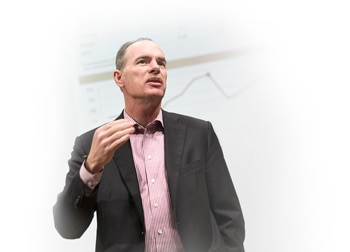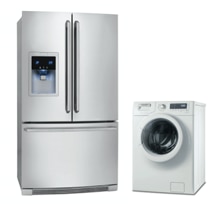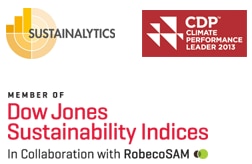Performance review: People and operations (Efficiency)
As part of its sustainability approach, Electrolux communicates objectives, progress on priorities of each stated aspect of its strategic pillars, along with the next step for 2014 and onwards.
| Focus area | Objective / challenge | 2013 performance | Next step |
|---|---|---|---|
| Reducing energy use in operations. A medium-term relative reduction target for energy consumption in operations by 15% between 2011 and 2015. |
|
|
|
| Establish baseline levels of performance on efficient operations and encourage best practice. |
|
|
|
| Carbon reduction from transportation of goods. |
|
|
|
| Improve water efficiency of Electrolux operations. |
|
|
|
CEO Statement

In 2013 we continued to deliver above our growth target and delivered 4.5% in organic sales growth.
CEO Statement

I'm convinced that raising product efficiency for the growing middle class is where long-term shareholder value creation lies.
Our products

Electrolux is the only appliance manufacturer in the industry to offer complete solutions for both consumers and professionals. The focus is on innovative and energy-efficient products in the premium segments.
Sustainability
Achieving the Group's vision of sustainability leadership is crucial to realizing the business strategy. The objective is to develop smarter, more accessible, resource-efficient solutions that meet people's needs and improve their lives. Read the comprehensive sustainability performance review.
Awards & recognition

Financial Reporting
Net sales for the Electrolux Group in 2013 amounted to SEK 109,151m, as against SEK 109,994m in the previous year. The organic sales growth was 4.5%, while currencies had an impact of -5.3%.
